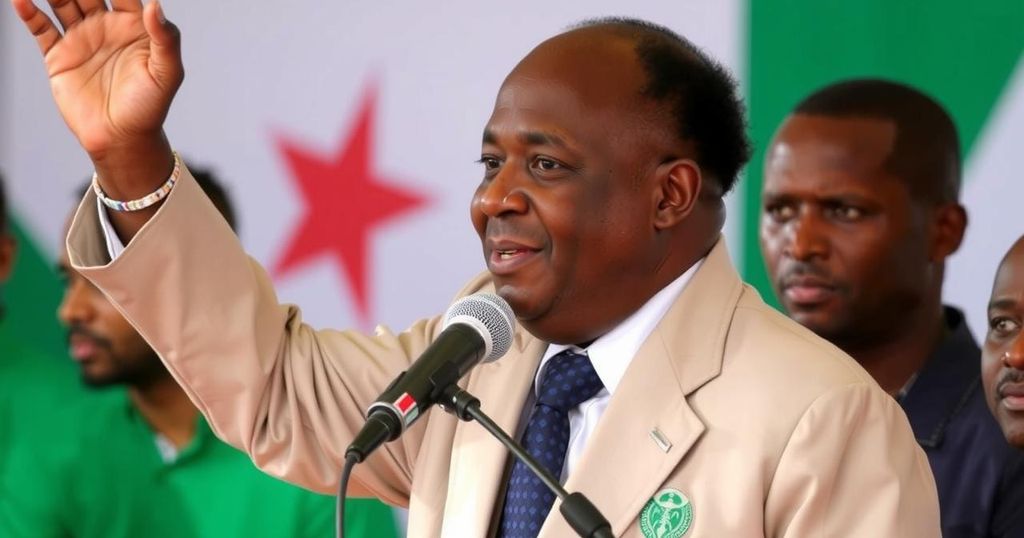Chad’s Ruling Party Secures Majority Amid Opposition Boycott in Elections

Chad’s ruling Patriotic Salvation Movement won a majority in the parliamentary elections with 124 out of 188 seats amidst a boycott by major opposition parties. The election, which saw a 51.5% voter turnout, represents the country’s first parliamentary engagement in over a decade and is significant for President Mahamat Idriss Déby’s consolidation of power.
In December’s parliamentary elections, Chad’s ruling party, the Patriotic Salvation Movement (PSM), achieved a commanding majority, winning 124 out of 188 seats. This outcome fortifies the political position of President Mahamat Idriss Déby, particularly in light of a boycott by over ten opposition parties, which included significant figures such as the Transformers party. Amidst a voter turnout of 51.5 percent, these elections mark the country’s first parliamentary contest in more than a decade, coinciding with local elections and the final phase of Chad’s transition to a more decentralized governance structure.
Since taking power in 2021 after the death of his father, former President Idriss Déby Itno, Mahamat Déby has steadily positioned himself as a crucial military and political figure in Chad. His ascent was substantiated by a disputed presidential election last year. The president expressed optimism about the outcomes of the recent elections, suggesting they would initiate a long-desired era of decentralization, potentially redistributing power to provincial and municipal authorities. However, the main opposition parties dismissed the elections as a mere façade, echoing their concerns about the legitimacy of the presidential vote conducted the previous year.
Chad has been under military rule since 2021 following the death of long-time President Idriss Déby Itno, who was in power for 30 years. His son, Mahamat Idriss Déby, assumed leadership during this transitional phase. The recent parliamentary elections are part of a broader effort to establish a more decentralized political system, aimed at enhancing the representation of local governance. However, the absence of key opposition voices due to their boycott raises significant questions about the credibility and inclusivity of the electoral process. Furthermore, Chad faces ongoing security challenges, including threats from Boko Haram, adding complexity to the nation’s political landscape.
In summary, the ruling Patriotic Salvation Movement’s substantial victory in Chad’s recent parliamentary elections reflects the party’s strengthened hold over the political landscape, despite the opposition’s boycott. The elections are pivotal for the ongoing transition toward decentralization under Mahamat Idriss Déby, although the legitimacy of the electoral process remains in question due to significant opposition withdrawals. As Chad navigates serious security concerns, the implications of this election could have lasting effects on the country’s political stability and governance.
Original Source: www.rfi.fr






